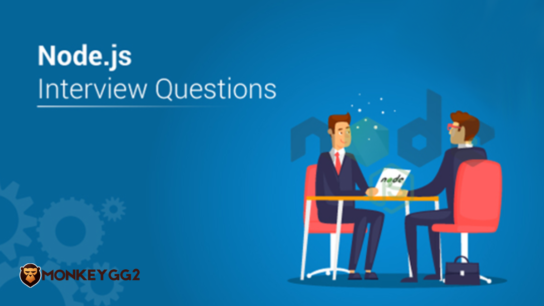Introduction
9/11 Jokes, The September 11 attacks were a tragic moment in history, marking one of the most devastating acts of terrorism the world has ever seen. The loss of nearly 3,000 lives left an indelible scar on global consciousness. In the aftermath, grief, fear, and anger dominated the public discourse. However, as time passed, humor—specifically dark humor—found its way into conversations. The emergence of 9/11 jokes has sparked intense debates over the ethical boundaries of comedy. Are such jokes an expression of free speech, a coping mechanism, or simply offensive? This article explores the origins, psychology, ethical concerns, and cultural impact of 9/11 jokes.
The Origins of 9/11 Jokes
Tragedy has historically been accompanied by humor. From wars to natural disasters, people have used comedy as a means of processing pain. The emergence of 9/11 jokes followed a similar trajectory. Initially, there was a widespread reluctance to joke about the attacks, given the scale of devastation and trauma. However, as the years passed, dark humor surrounding 9/11 started surfacing on internet forums, social media platforms, and even in some comedy specials.
The internet played a significant role in the proliferation of these jokes. Early meme culture, satirical websites, and anonymous forums like 4chan became breeding grounds for dark humor. While some people viewed these jokes as disrespectful, others argued that humor serves as a means of reclaiming control over tragedy. The role of comedians in shaping public perception also cannot be ignored. Some well-known comedians have incorporated 9/11 jokes into their routines, often testing the boundaries of what is socially acceptable.
Psychological and Sociological Perspectives on Dark Humor
Humor is often seen as a coping mechanism, helping individuals process difficult emotions and traumatic events. Psychologists suggest that dark humor can be a defense mechanism, allowing people to distance themselves from the pain of reality. Sigmund Freud’s theory of humor posits that laughter acts as a release for repressed emotions, making difficult topics more digestible.
Sociologically, humor also plays a role in group identity. Shared laughter can create a sense of camaraderie, especially among those who use humor as a means of confronting uncomfortable truths. However, the problem arises when such jokes alienate certain groups—especially those directly affected by the tragedy. In the case of 9/11 jokes, survivors, families of victims, and first responders often perceive such humor as deeply offensive. The question then arises: does the intent behind a joke matter more than its impact?
Ethical Concerns and Public Backlash
One of the most contentious aspects of 9/11 jokes is the ethical dilemma they pose. Where is the line between humor and outright insensitivity? Ethical debates around comedy often revolve around the balance between free speech and social responsibility. While humor is a fundamental aspect of human expression, it becomes problematic when it trivializes suffering.
Many public figures, including comedians, have faced backlash for making jokes about 9/11. Gilbert Gottfried, for example, made a controversial 9/11 joke at a roast in 2001, just weeks after the attacks. The audience response was overwhelmingly negative, leading to widespread criticism. This reaction highlights how context and timing play crucial roles in determining the acceptability of a joke.
Additionally, cultural differences influence perceptions of humor. While some Western audiences may be more receptive to dark humor, other cultures view it as entirely inappropriate. The internet, however, has blurred these cultural lines, making controversial humor more accessible and, consequently, more debated.
The Role of Media and Pop Culture in Normalizing 9/11 Jokes
The entertainment industry has played a significant role in shaping how society views 9/11 humor. Television shows, movies, and stand-up comedy have all addressed 9/11 in various ways. Some have used satire to criticize political responses to the attacks, while others have taken a more lighthearted approach. Shows like “Family Guy” and “South Park” have included 9/11-related jokes, often pushing the boundaries of what audiences find acceptable.
The rise of internet memes has also contributed to the normalization of 9/11 jokes. Platforms like Reddit and Twitter are filled with dark humor memes that use irony and satire to comment on historical events. While some argue that these jokes help people engage with history in a more accessible way, others believe they diminish the gravity of the tragedy.
Audience reception to 9/11 jokes has also evolved over time. Younger generations, who did not experience the attacks firsthand, may have a different perspective on 9/11 humor compared to those who lived through it. This generational shift raises important questions about how society preserves historical memory while allowing humor to evolve.
Should 9/11 Jokes Be Off-Limits?
The debate over whether 9/11 jokes should be off-limits continues to divide opinions. Some argue that comedy should have no boundaries and that humor is an essential part of free expression. Others believe that certain topics should remain sacred out of respect for those affected.
Comedians often justify dark humor by claiming that it challenges societal taboos and encourages critical thinking. However, critics argue that not all dark humor is created equally. The difference between a well-crafted joke and a tasteless remark often lies in intent, delivery, and audience reception.
Other tragedies have also been the subject of humor over time, such as jokes about World War II, the Titanic, and natural disasters. The passage of time seems to play a role in determining when a tragedy becomes “fair game” for humor. However, given the ongoing global impact of 9/11, many argue that the attacks are still too sensitive a subject for comedy.
Conclusion
9/11 jokes exist at the intersection of comedy, ethics, and free speech. While some view them as an inevitable part of how society processes tragedy, others see them as deeply disrespectful. The key takeaway is that humor is subjective, and what one person finds funny, another may find offensive. Ultimately, the acceptability of 9/11 jokes depends on context, audience, and intent. As society continues to evolve, so too will the boundaries of humor and the discussions surrounding it.
Also Read: fat jokes






